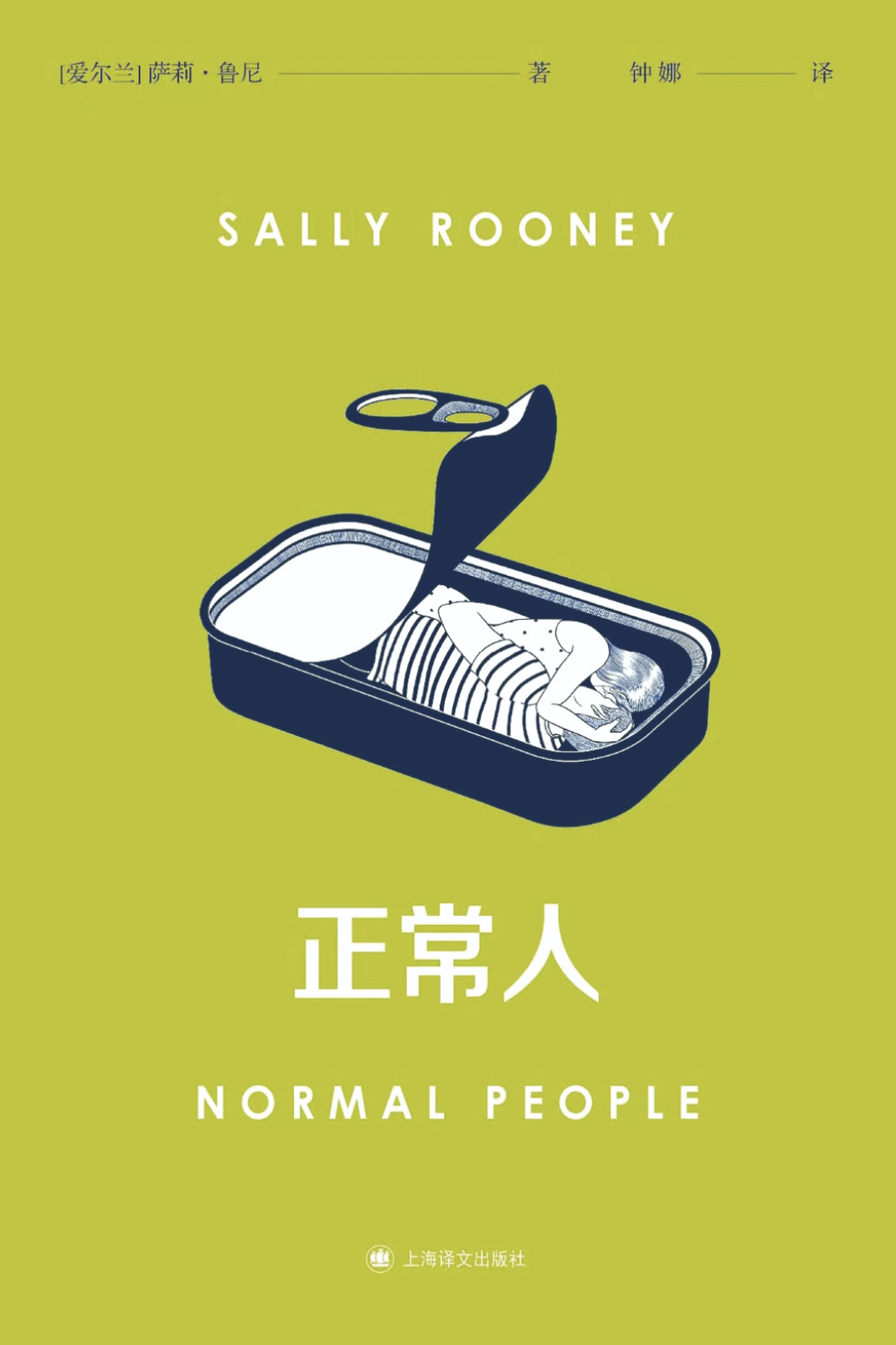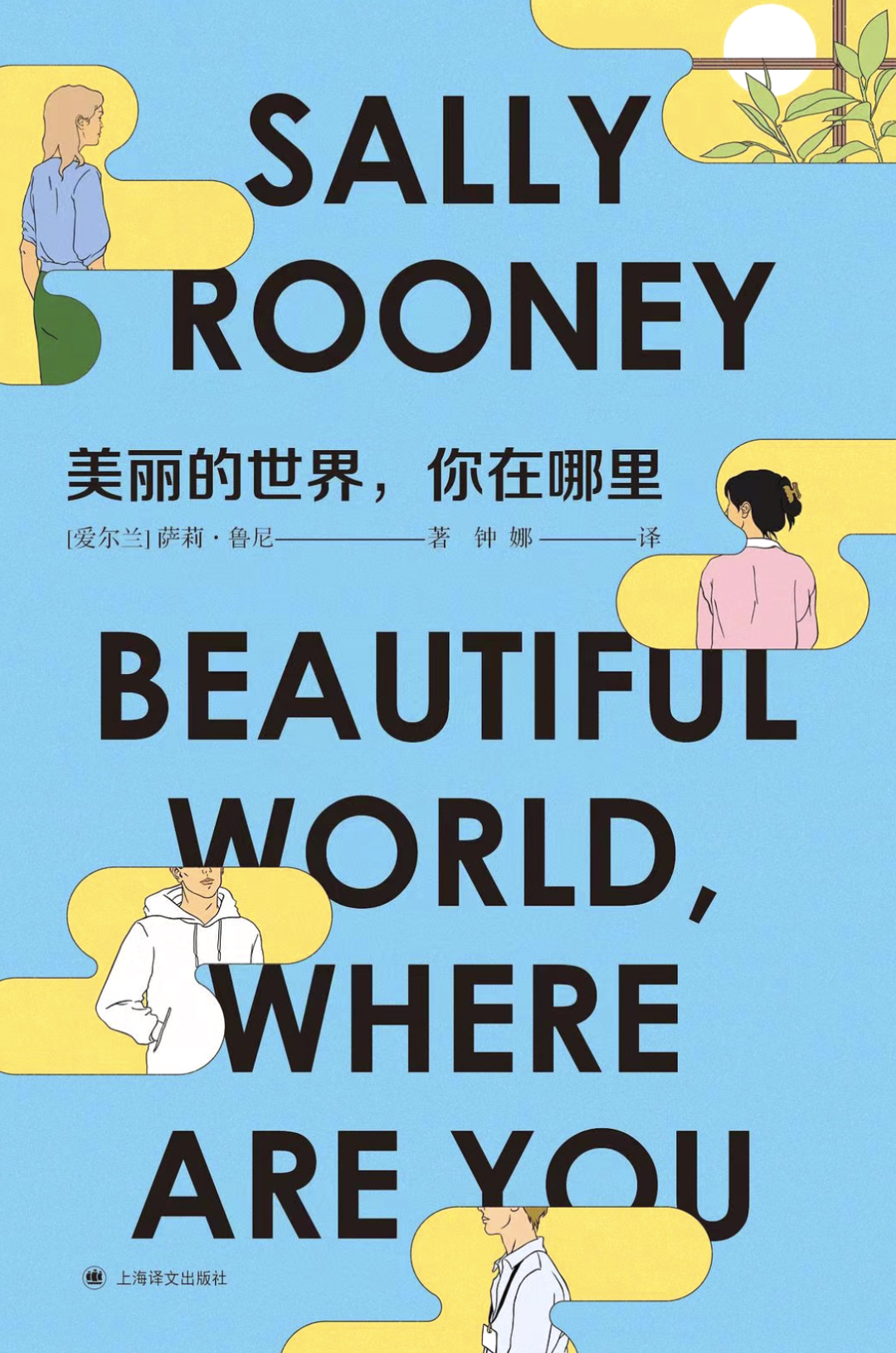From "Chat Records" to "Beautiful World, where are you": the boundary of Sali Runi
Author:Art newspaper Time:2022.08.13


Sali Reni
During the epidemic, Sali Runi completed and published her new work "Beautiful World, where are you". At this time, I went back to see her first two novels "Chat Records" and "Normal People". In just five years, she has risen, not only has a professional award nomination in the literary fields such as Booker Awards, but also becoming the target of paper media such as the New York Times. The film and television medium further enlarged her influence and did not exaggerate that she has become one of the hottest young writers in the world in the past five years.
The language of Rooney is contemporary, short, bright, and has a sense of deliberate but unpreparedness. She described the characters' actions in lightly, outline the scenes of their lives, and never procrastinates. There is neither the full development of the material environment in traditional novels. At the same time, it is coherent. Said that she does not think that her novel has any "anti -tradition" in form. In other words, she does not seem to think that it is necessary to perform excessive formal operation in the style of the novel, but this does not hinder the "Chat Record" and "Normal People "'s distinctive revolution and challenges to social norms. The relationship in her pen is also contemporary, unstable, uncertain, the characters try to confirm herself in the relationship, rather than through the personal achievements in this world; SMS, mail, telephone, video are important ingredients of the daily life of the characters, walking across the walk through The distance that can be reached in ten minutes, Francis and Nick still use the phone to flirt, and the in -depth communication between friends can be achieved more through mail instead of chatting face -to -face. The transformation of the exchange medium has never been displayed in the novel so deeply, and Rooney has not treated the structure of the novel as a fragmentation. Many comments have traced her novel style to the British letter tradition in the 19th century.

There is no doubt that the sexual relationship is the most important clue in Rooney's novels. Whether you like her huge description of the physical experience of women, the symbolicness of the passive and passive male image cannot make people blind. When the male protagonist of "Chat Records" and "Normal People" face women, they often show the gesture of awe and even concessions. They take the initiative to give the right to the woman and do not give any definition or guarantee -of course, Reni can be used in Reni The description of the ideal relationship in "Beautiful World, where are you" explained that the relationship between people is like flowing water, which is originally unspeakable. However, the image settings of the characters still inevitably lead us to the realistic situation: In this "civilization" era, wildness and physical strength have lost their original functions to a certain extent, and men may even fall into a more weak situation. In Runi's pen, Francis's father, Mariana's brother, and Nick are unable to settle in their social roles. They are willing to spend their lives in alcohol or derailment. What does "power" mean?
This is beyond the category of interpretation of binary opposition and does not conform to the mainstream ideology of feminism. If there is still so -called "mainstream" in the world today. In fact, men in this era may not have more privileges than women, as Ruoney said in the novel: If this society is completely dominated by men, it is difficult to explain why they live in the world they created. life.
In the early days, you couldn't help but think of these problems. Can you choose what we want and reject all the parts we do. Whether it is philosophy or actual action, is it possible to minimize these compromises? Since the younger generation has not fully agreed with the existing rules. But this still has to be paid. For example, although Mary Anna in "Normal Man" has defaulted to associate with Cornell's underground, it is still angry with Cornell's concealment behavior; in "Chat Record", Francis has no doubt herself doubted herself. There is the right to be rebellious, but she cannot be at the love relationship between her and the woman of Nick, who is a woman, and she has been struggling with whether she is hypocritical, whether it destroys the family of others, does it want to monopolize him, does she want to want him, do they want to want him, do you want to want to be, do you want to want him, do you want to want him, do you want to want him, do you want to want him, do he want Do this relationship reasonably and legally? If this is the case, where will their relationship go; if not, what does their relationship make? Rooney also extends to the individual's thoughts on the way of survival: if I do not want to work, I don't want to be exploited, I don't want to participate in the wave of capitalist globalization, and at the same time require money to support the basic life. I even have a foothold after graduating from college. Land, relying on the operation of capital to support my reputation, there is a smooth and unobstructed expression channel. Then, how can I learn to seek balance in the intermediary, and how can I feel at ease at the same time as unruly?
The moral debates about good and bad people have become a seemingly simple but still difficult to answer in the specific practice of the characters: whether it will hurt others; "harm" itself is a feeling that cannot be absolutely unable to be absolute. So the characters had to fall into the predicament of emotional relativism. In Lui's pen, everything that is solid disappeared, which is exactly the conclusion given by Marx, who was hung by the protagonist more than a hundred years ago. Under such a moral dilemma, Francis and other major characters in the novels try to build their own moral concepts, not to be responsible for others or society, but just to be self -responsible for individuals.
"Chat Records" and "Normal People" also reminded the contradictions created by another modern education system. The professional knowledge in the humanities itself has built the context of division. The literature after romanticism to modernism is basically the reaction to classical literature; criticality has almost become the cornerstone of the theory of humanities and social sciences. As a protagonist of literature, reading means a deeper understanding of the world, and it also means a huge gully between reading life and the logic of real world operations. How the characters uphold a critical attitude and live in the world they do not agree, this is a terrible thing in itself. In other words, whether intentionally or unintentionally, a confrontation relationship is formed between the university education and inheritance of knowledge production and inheritance. This sense of break is particularly clear in the early novels of Rooney. Of course, "Beautiful World, where are you" may inadvertently reveal another more disappointing fact, that is, the former is also part of the latter, and there is no true confrontation in the sense.
Nevertheless, Runi's characters still try to build new subjectivity. This has a clear comparison with the creation of McUn and others when they are young. When the generation was young, they disdain any views. They were negative, passive, and the novel was filled with unsolvable virtuality. This is why, although the characters of Rooney are not perfect, even not cute, not enough rebellious, and may be sharp or selfish, but they seem to have a sense of responsibility. Modern society has caused a strong sense of squeezing for personal space. People live in a huge greenhouse, but they still want to live sincerely. The efforts to establish a new personal order are worthy of respect.

Of course, this is not necessarily a real difficulty for young people in their early 20s and before graduating from college, because young people can temporarily curl up in the ivory tower with an abstract concept. Francis, Bobby, and Mary Anna, who have not left the campus, have not yet been covered by any relationship. Faced with the "trap" of marriage and work, they turned lightly and participated in it in a loose, without a clear contract. This is somewhat anarchism. Indeed, when the form of a relationship is greater than meaning, it has become a guarantee of a sense of security, not only can people not obtain a real sense of security in it, but because of the substantialness and the alienation of the appearance, they fall into a spiritual division. This is also mentioned by Rooney in "Chat Records". Depression is likely to be a normal reaction of capitalism, or it is a resistance to capitalism in itself. Surgery and omnipotent institutionalization leaves less and less opportunities for individuals and choices. All the constructive construction done by the normal operation of society will finally be under the individual that will be deepened by each of them. This is probably the paradox of modern civilization itself. Loui has not further developed in this sense, but the tendency of sympathy is undoubtedly dangerous.
In addition to topics such as capitalism and feminism, "Chat Records" and "Normal People" have a clearer intergenerational sense. The two heroines Francis and Bobby show deliberate mockery and "cool" self -proclaimed older people. Yes, we all know that we are different from them, but what exactly is different and different? In addition, the relationship between the protagonist and the parents is also worthy of fun. None of the families in the two novels are in line with expectations, almost all of them. Whether it is Francis, who often falls into the economic dilemma, or a Bobby with excellent family situation, they are eager to get rid of their families and seek new ways. Children are related to the future, but isn't it a cycle? I would rather summarize the family relationship in Rooney as: We are your children. Let's see how you raised us to grow up?
Although Rooney impressed the character in the pen, he never overdated and maintained a sense of respect. The tolerance of not judging is also the characteristics of new humans. Although worry is necessary, grass will still grow. Young people will rebuild a new life in anywhere, between the gaps of the cliffs, on the wasteland, and the crushed rubble. Don't be busy definition, don't be busy with moral judgment, each era is different in the dilemma facing each individual. After all, without the revolutionary trend of the 1960s and 1970s, what form would young people express their dissatisfaction? Power has a capillary -like branch, corresponding to it, the resistance becomes micro and everywhere.
However, once they leave the campus and enter the society, what kind of challenges will these seemingly profound and pure concepts face? Because of this, Rooney's newly published third novel "Beautiful World, Where Are You Are You" is both expectable and disturbing. The protagonist left the campus with the pace of the author's growth. Rooney took the initiative to answer the reader's questioning. Francis's maverick is because she is a millennial or because she is on campus, and she has not really entered the society? Francis grew into the Nick couple in "Beautiful World, where are you", or the Nick couple became the first real focus of the novelist after marriage?
When reading "Chat Records", I thought of Goethe's "Kind Cooperation". Also a couple invited two opposite sex to enter their lives, such as a marriage chemistry experiment. Evergreen, no armor. Compared with the latter two works, the "Chat Record" seems a bit rough, but rough is likely to be a valuable texture. It will make you return to your youth over and over again, remembering the days when your dreams and reality are anxious, the adolescence full of mystery and desire, and the alienation that you have not yet been dismissed. Hope of sincere communication. Yes, why can't we love each other, why can't we have the relationship between bone cutting into myelone? Is it because we look down on all this or bad habit? And "Beautiful World, where are you" reminds me of the ending of Dickens's growth novels. Those young, powerful children, facing all kinds of unexpected and sudden dangers, showing their wit and wit The strong hope of survival has completed the change of the class in the end, and finally settled down. The protagonist is no longer afraid and no longer confused, but it can only be placed at the end of the story. Dickens seems to never be interested in writing them. life.
The end of the growth novel is indeed very tested. In a sense, the three novels of Rooney have a similar end, which is not as open as its openness. The end of "Chat Record" was ironic, and Francis realized that he had to go to life and obtain a real experience by action. This struggle experience comes from the dilemma of morality, but we still need to use love and love to confirm our existence, which has never changed. "Normal Man" ended with Cornell's finding an intermediate road. It was the unconditional love and understanding between Mary Anna and him that made it all true. "Beautiful World, where are you" fears no longer exist, and the anxiety of survival has faded. The enthusiasm of expressing opinions on this world is still the same. Fall in love with a physical worker, Lui's thinking about the class finally made a poor dagger. The difference between brainpower workers and physical workers is not to have higher income, but in what "world" they live in. Intellectuals have a world of imagination. In this world, they live on advanced exchanges and confirm their positions by constantly expressing seemingly high opinions on this world. And what exactly is the life of the workers, do we really understand? Is it her income or an intellectual identity that determines that Alice's location between the relationship between the two -sex relationship?

Many readers have noticed that George Sang has appeared in Rooney's novels several times. In "The Beautiful World, where are you", Dostoevsky and Henry James occupy a more critical position, which has also become the focus of readers. People often look forward to a deeper dialogue relationship between the connotation of the interoperability and the novel, but they appear in the pen of Rooney, but they are the books held by the protagonist. Like the snacks and restaurants she eats, it is largely just just a large extent. Part of the plot. Because of this, interoperability may be used as a teasing, or it becomes an unsolved mystery -but in any case, from the reaction of the reader, they would rather give a deeper and more playful thinking, not only the organic front In the dialogue, the sense of humor can easily be dissolved in the process of translation; in other words, they hope that Rooney gives intellectual -level insights, and at the same time is unwilling to be preached. It is also afraid that daily nature will make the mutual text slow. I am also very curious. If a reader who has never read Austin, I don't know how to view the appearance of these works in her book, and whether we read the more than a dozen past dozen in the past dozen in her book. During the year, with the bands and song names that the young people of Ireland grew up, they thought they were unfamiliar, appropriate, and brought about narrative magic, or full of mystery? They evoke the intimacy of the people, but the emergence of classic works has aroused general hostility of readers. We seem to be comparable to contemporary writers and classic writers, even if she just arranges characters to read this book. As a "intellectual", we first deny the meaning of our own life -with the help of reading and thinking, and then back to reading, instead of doing something directly to the world; , But it is not capable of facing specific individuals (in this regard, Dostoevsky does provide a prescription for treatment). In this way, does the concept of abstraction become a self -comforting thinking game in the face of reality? Literary youths have been thinking and even discussing these major issues, but did the world have changed any change? Is this huge and unprecedented machine that continues to work unnecessary and unnecessaryly?
In addition, in the works of Rooney, there is a space for dialogue from beginning to end. Regardless of the rest of its frank communication, it seems that the communication between people is directly pulled to the spiritual level. The spiritual life is permeated in their daily life. What does this mean in China's context seem to be a question worth thinking about.
Content source: Literature and Art News August 12, 2022
WeChat editor: Lu Yimeng
- END -
Lile and Le Shandong | Weihai: Rongcheng Marine Featured Non -Heritage Protection Work selected as the top ten highlights of the provincial level

Recently, the Shandong Provincial Department of Culture and Tourism announced the ...
"Little Pens" addcans! Ningbo's first summer primary and secondary school student painting contest opened

Jiangnan You Rongrong Media on July 18 (Reporter Chen Chong correspondent Yan Xiny...